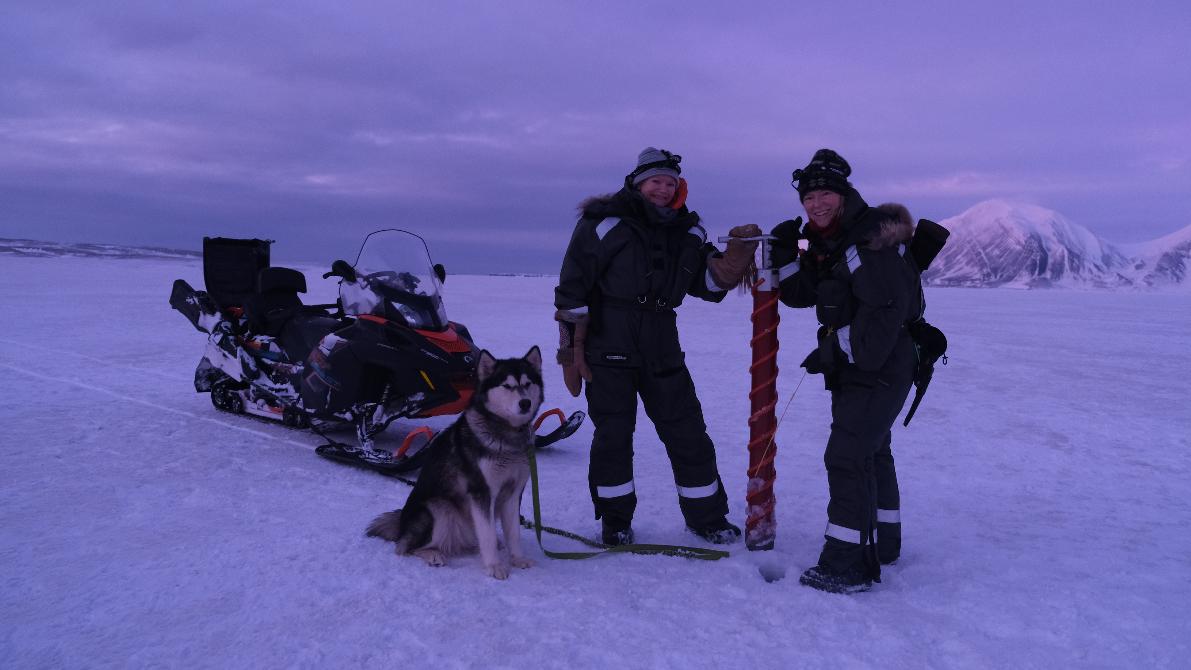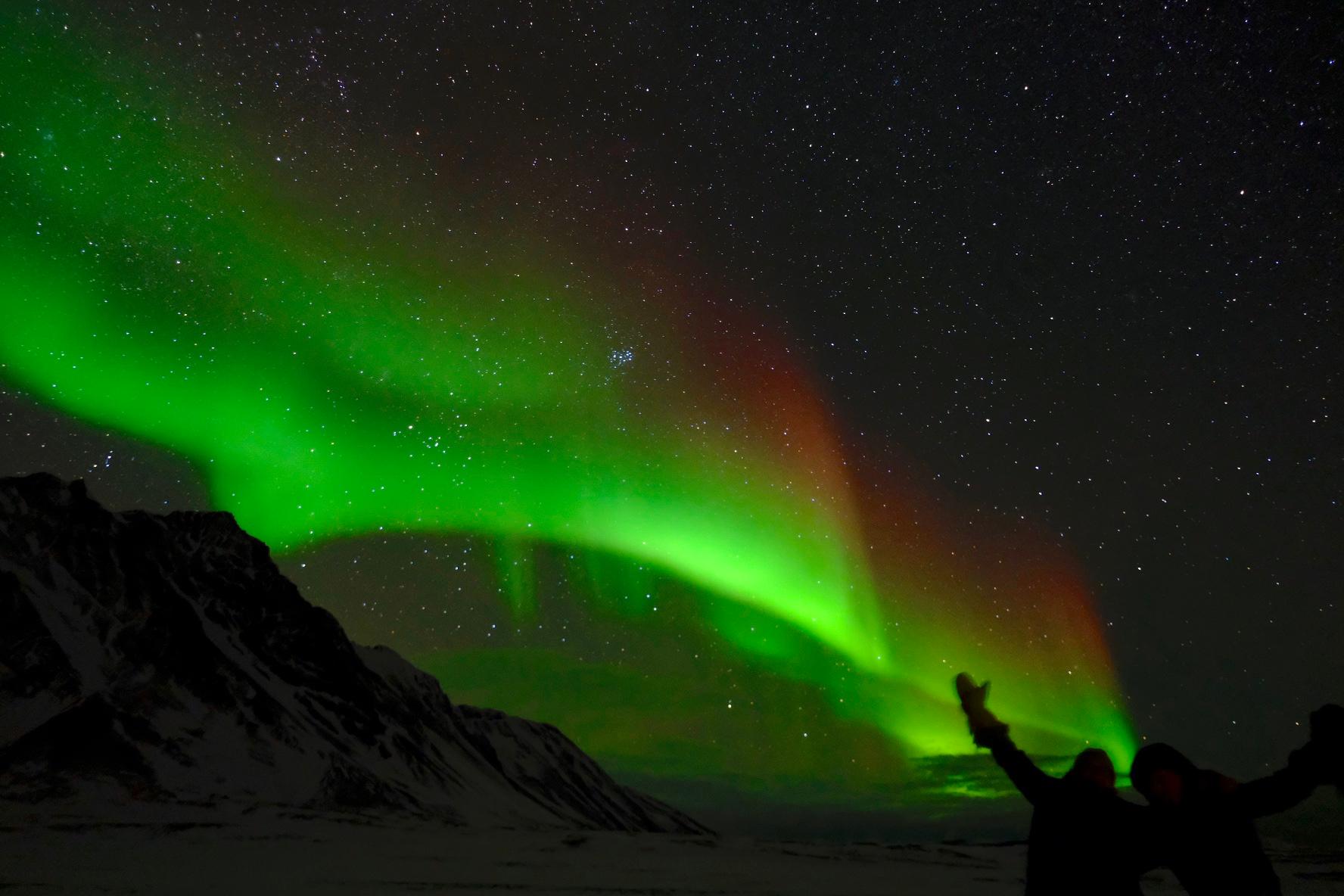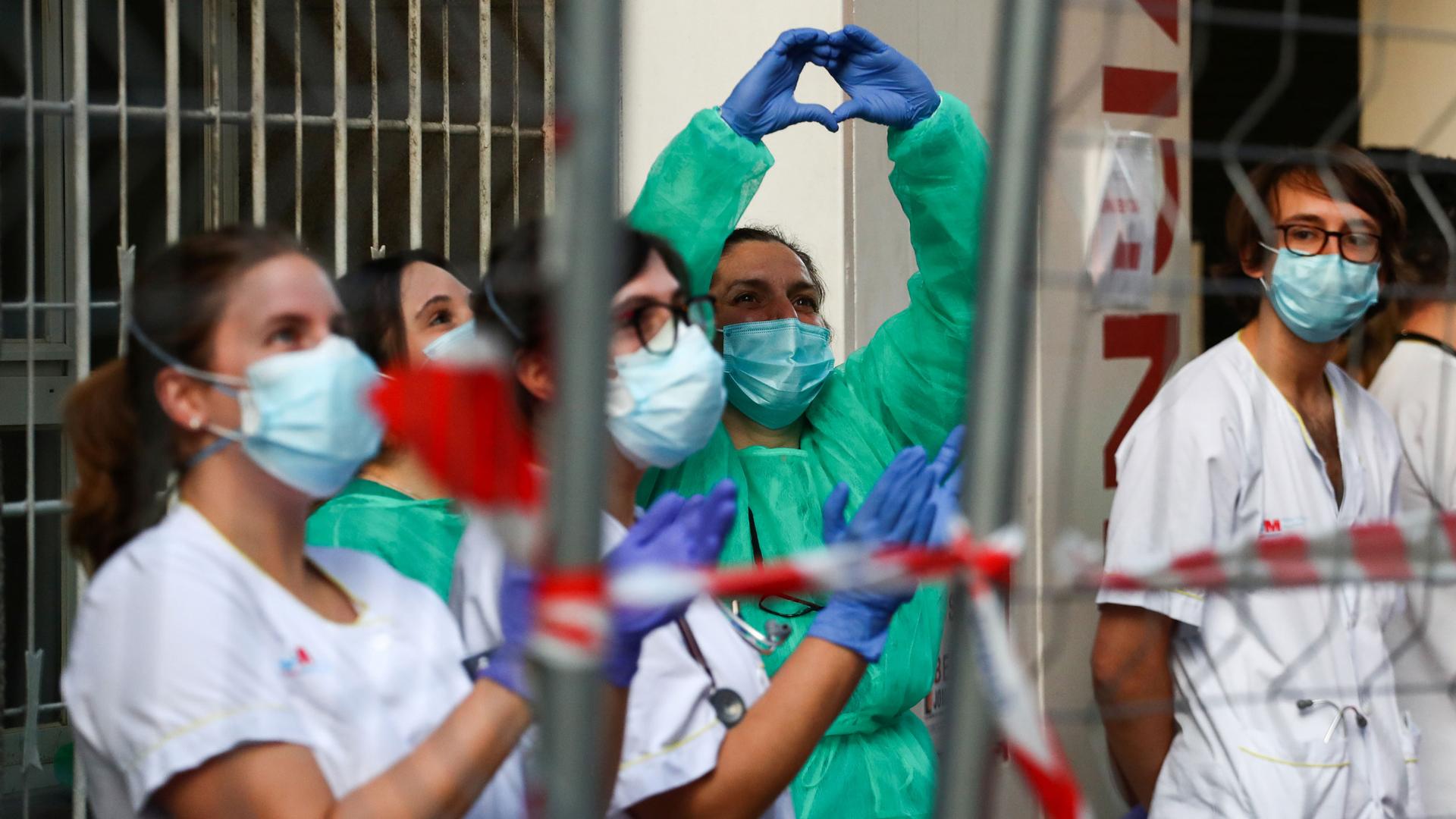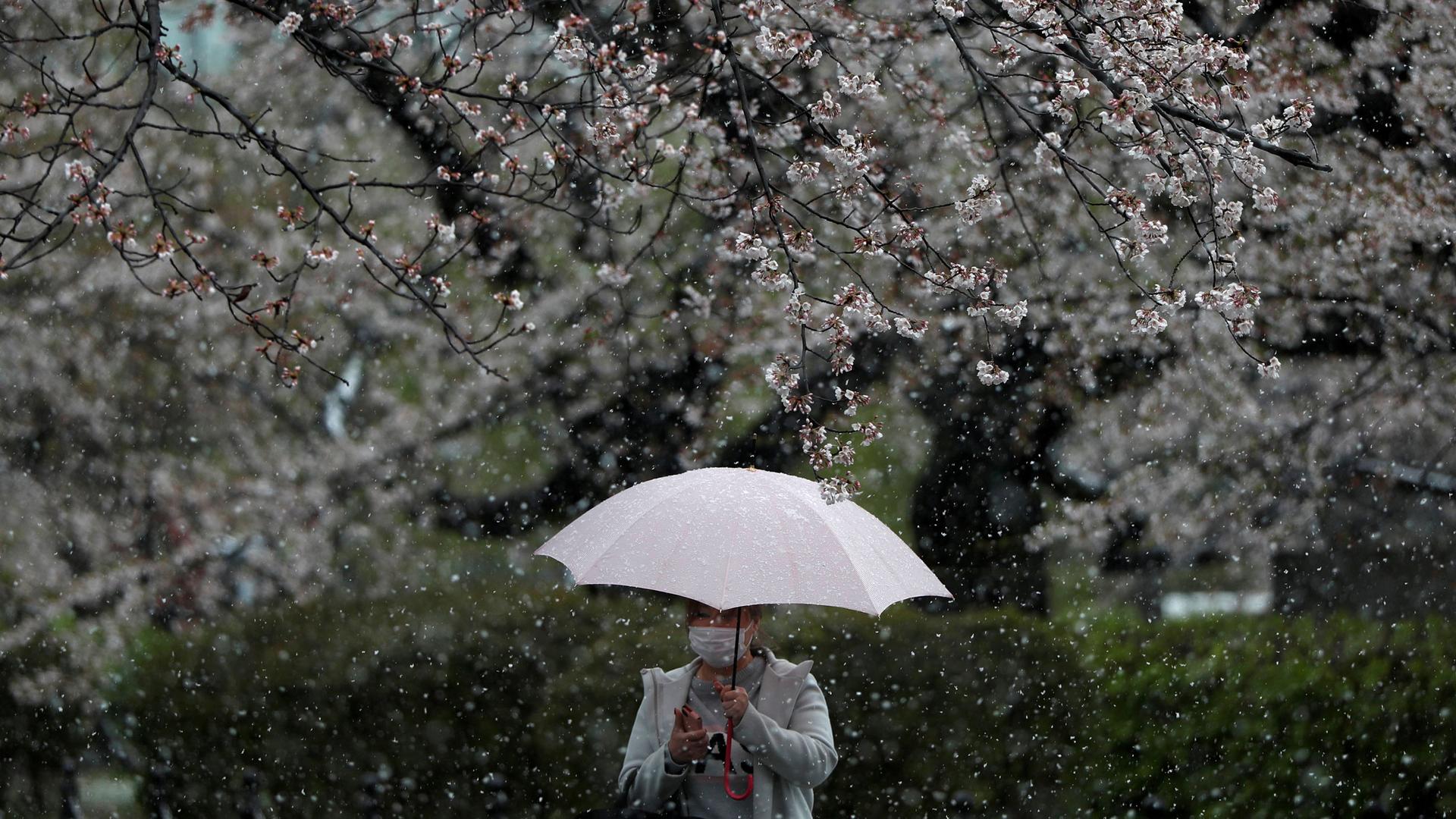Japan declares emergency; Coronavirus impacts democratic participation; Hezbollah’s latest front line?
A woman wearing a protective face mask, following an outbreak of COVID-19, walks under blooming cherry blossoms in a snow fall during the first weekend after Tokyo Governor Yuriko Koike urged Tokyo residents to stay indoors in a bid to keep the coronavirus disease from spreading, March 29, 2020.
Top of The World — our morning news round up written by editors at The World. Subscribe here.
Japan issued an emergency declaration for several prefectures, and Tokyo Gov. Yuriko Koike has requested the 13 million residents of her city stay home until May 6. But under Japanese law, there are limited ways to enforce lockdown measures, and a Japanese doctor in New York warns that Tokyo looks like New York just a few weeks ago. There are now more than 130,000 novel coronavirus cases confirmed in New York.
Prime Minister Boris Johnson is in intensive care for the coronavirus, receiving oxygen support, but not on a ventilator. If he were to become incapacitated, who would take control of the UK?
April 7 is World Health Day, and 2020 is the International Year of the Nurse and Midwife. This year health workers deserve our thanks more than ever. But the World Health Organization reports there is a near-6 million global shortfall in nurses, who “are the backbone of any health system.”
Also: Cardinal George Pell freed from prison after High Court overturns sex abuse conviction
Discussion: COVID-19 is testing emergency preparedness. What’s next?
Coronavirus impacts democratic participation
In Hungary, Prime Minister Viktor Orbán’s government passed a law granting itself sweeping powers to tackle the coronavirus. But there is no “sunset clause” bringing emergency powers to an end — which is causing alarm among government opponents and activists who have already warned of Hungary’s precipitous democratic decline.
Despite lockdown orders, Wisconson voters are obliged to head to the polls today. The US Supreme Court ruled 5-4 that the state cannot accept mail-in ballots after today’s election — even though many voters have not yet received the absentee ballots they’ve requested. The number of polling places has also been curbed sharply, as poll workers fear for their safety during the coronavirus pandemic. What’s next for the 2020 US election calendar?
And: Brazilians protest Bolsonaro’s handling of the coronavirus pandemic
More: Trump, GOP challenge efforts to make voting easier amid coronavirus pandemic
Hezbollah’s latest front line? The fight against coronavirus.
In Beirut’s southern suburbs, young men from Hezbollah’s Islamic Health Society spray disinfectant, filling the neighborhood with the heavy smell of chlorine. Nearby, paramedics in bright green protective gowns pose in front of a row of ambulances.
Hezbollah — a Lebanese political party and militant group considered a terrorist organization by the US and other Western countries — is not alone in trying to sanitize the streets. Most of Lebanon’s traditional political parties have launched their own campaigns in the wake of the virus, seeing an opportunity to reassert their influence.
From The World: What the US can learn from West Africa to slow the spread of coronavirus
‘I am lucky I survived’: Voices from Iran, one of the worst-hit COVID-19 countries
Iran has the world’s fifth-highest death toll from COVID-19. And while some people are struggling to overcome the disease, others are wondering whether they can survive financially.
Last week, Iran’s government announced a $5 billion financial relief package for low-income families and businesses impacted by the coronavirus. Iran’s economy was already hit hard before the outbreak, partly because of heavy economic sanctions imposed by the United States.
And: Coronavirus in the Middle East: Creativity to help knows no bounds
Can Tulane University’s monkeys help the global fight against the coronavirus?
Monkeys at the Tulane National Primate Research Center have been infected with the novel coronavirus. Eventually, the animals will be tested with potential vaccines — and that research could be helpful to humans.
The center is one of eight built in the US in the 1960s to conduct biomedical research. Within this network, Tulane is the only one that also has a regional biocontainment laboratory.
“There are very few places in the world that have the capabilities that we have,” said Jay Rappaport, director of Tulane’s National Primate Research Center. “Everything that you can imagine that you would need to address this epidemic is really here.”
Surviving close togetherness on a remote Norwegian island

For more than seven months, Sunniva Sorby and Hilde Fålulm Strøm have self-isolated by choice in a one-room wooden cabin in Svalbard, Norway — a cluster of islands midway between continental Norway and the North Pole.
The two women are “citizen scientists” who have teamed up with researchers at the Norwegian Polar Institute and the Scripps Institution of Oceanography to record weather patterns, test new technologies for solar and wind energy, and observe wildlife behavior in this remote region.
Listen as Sorby and Strøm share their tricks to cope with being alone together.
Morning meme
As more airplanes are grounded, photographers delight in capturing photos of the night sky with less light pollution.

In case you missed it
Listen: Coronavirus outbreak showing signs of slowing in Spain

Spain is the country with the second most reported cases of COVID-19 in the world. However, there seems to be some good news of late: Spanish officials are reporting the growth rate of the virus shows signs of slowing. And, Lebanon’s Hezbollah, which recently invited reporters to tour some of its medical facilities, says it’s ready for the battle against coronavirus. Also, New Zealand Prime Minister Jacinda Ardern made an important announcement Monday: the Easter bunny is considered an essential worker.
Don’t forget to subscribe to The World’s Latest Edition podcast using your favorite podcast player: RadioPublic, Apple Podcasts, Stitcher, Soundcloud, RSS.
We want to hear your feedback so we can keep improving our website, theworld.org. Please fill out this quick survey and let us know your thoughts (your answers will be anonymous). Thanks for your time!
